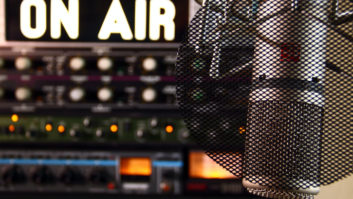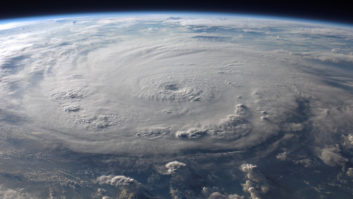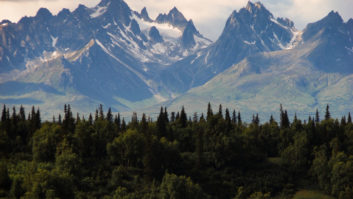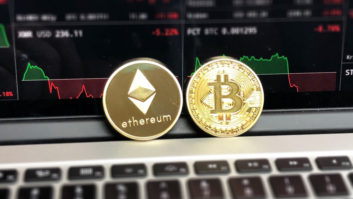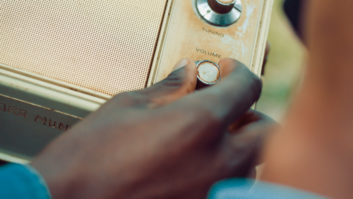The author is membership program director of the National Federation of Community Broadcasters. NFCB commentaries are featured regularly at radioworld.com.
Community radio journalists and the necessity of reporting in diverse communities took center stage during this week’s scandal involving fired FBI Director James Comey and Pres. Donald Trump.
Well, maybe not explicitly, but in a more profound way than we at first recognize.
The New York Times revealed that the president allegedly asked former FBI Director Comey to consider imprisoning journalists reporting on classified information. The Reporters Committee for Freedom of the Press blasted Trump’s reputed request, pointing out the public service that journalists play. “The president’s remarks should not intimidate the press but inspire it,” the group concludes.
The Comey affair has ignited a firestorm over the media, elected officials and the place for journalism in a civil society. As those at ground zero of the nation’s underreported stories, community media reporters and outlets would do well to take notice.
Rows between reporters and politicians have gone on for generations. This year, however, is shaping up to be a year where handcuffs are being deployed more often against local community journalists. Radio and all media surely don’t stand to benefit by the latest law enforcement actions.
On May 10, Public News Service journalist Dan Heyman was arrested while asking a question to Health and Human Services Secretary Tom Price. Price has since defended the arrest, although footage appears at best questionable.

Heyman said he was asking Price whether domestic violence would be considered a preexisting condition under the Trump-supported American Health Care Act. This is a claim by some people that has been widely reported as false. However, there’s an opportunity for Price to clear the air when the mic is in front of him, to show poise and take on any confusion directly. Instead, an overreaction by police against a journalist creates a different narrative for an officeholder. It doesn’t ultimately benefit her or him either.
Since Heyman’s arrest, Public News Service has seen a surge of interest. Lark Corbeil will speak at NFCB’s conference this summer, and donations are coming in to help PNS. However, Heyman and the media group still have an unnecessary charge to fight. Criminal court is a Byzantine and expensive process. In this instance, Heyman’s arrest seems purely punitive against the reporter.
Why should radio care about this incident? PNS provides news reports to community radio stations and others across the United States. It boosts community media journalism nationwide. In addition, it offers an example of distributed media that community radio can learn from in the aftermath of the April 28 death of Free Speech Radio News, which formerly serviced scores of stations.
The Heyman case has many headlines today, but before that, reporter Jenni Monet was arrested in February while covering demonstrations at the Standing Rock Native American reservation. Standing Rock saw thousands of protesters gather during a heated dispute about the Dakota Access Pipeline, environmental impact, Indian sovereignty and oil companies. Days after Monet’s booking, Trump gave the green light to the pipeline.
A longtime community media journalist with extensive credentials, Monet, like Heyman, sought to give context to a story that citizens demanded to know more about. A similar tale can be told of reporter John Donnelly, to whom the FCC apologized this week after security threw him against a wall while asking questions about net neutrality. Americans increasingly say they distrust the media, which only makes the role of community media journalism as storyteller and local resource even greater.
With Amnesty International speaking up on Monet’s behalf and groups rallying to Heyman’s defense, there is major opposition to the prosecutions of community media journalists. Still, it is incumbent that community radio to share how its reporters benefit cities and towns. Community media journalists only make life better, wherever those organizations may be.
Community media journalism has many good things going for it, for all the challenges it faces. Passion for communities is its strongest suit. Whether it is WORT in Madison winning awards for reporting on immigration protests or the lively local stories by WTIP volunteers in northern Minnesota, community radio has an unwavering desire to share regional voices. From Mississippi to New Mexico, Maine to Maryland, Iowa to Nebraska, nonprofit media helps us understand our neighbors and the issues affecting where we live.
But when a journalist runs afoul of the powerful, these small and minimally financed organizations face real peril.
In places like West Virginia and South Dakota, and many other regions, journalists serve a forgotten role in being the public’s eyes and ears. They can help dispel myths and bring light to issues communities talk about. That’s part of why the reported views of Pres. Trump are so worrisome to many. Without the fourth estate, democracy is hobbled.






